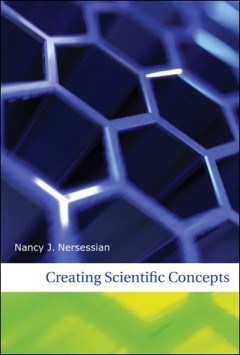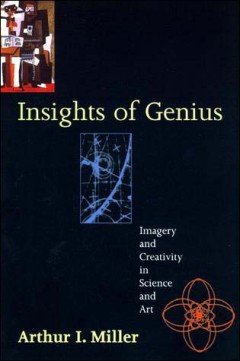Filter by

Creating Scientific Concepts
An account that analyzes the dynamic reasoning processes implicated in a fundamental problem of creativity in science: how does genuine novelty emerge from existing representations?How do novel scientific concepts arise? In Creating Scientific Concepts, Nancy Nersessian seeks to answer this central but virtually unasked question in the problem of conceptual change. She argues that the popular i…
- Edition
- -
- ISBN/ISSN
- 9780262280549
- Collation
- 1 online resource (xiv, 251 pages) :illustrations
- Series Title
- -
- Call Number
- -

Insights of genius : imagery and creativity in science and art
Originally published: New York : Copernicus, ?1996."How can new knowledge be created from already existing knowledge? Insights of Genius shows how seeing in all it's many forms - insight, revelation, a distinctive point of view - is central to the greatest advances of the human intellect. Artists and scientists alike rely on visual representations of worlds both visible and invisible"--Page 4 o…
- Edition
- 1st MIT Press pbk. ed.
- ISBN/ISSN
- 9780262287340
- Collation
- 1 online resource (xxii, 482 pages) :i llustrations
- Series Title
- -
- Call Number
- 500 MIL i

Insatiable curiosity :innovation in a fragile future
An influential scholar in science studies argues that innovation tames the insatiable and limitless curiosity driving science, and that society's acute ambivalence about this is an inevitable legacy of modernity.Curiosity is the main driving force behind scientific activity. Scientific curiosity, insatiable in its explorations, does not know what it will find, or where it will lead. Science nee…
- Edition
- -
- ISBN/ISSN
- 9780262280761
- Collation
- 1 online resource (179 pages).
- Series Title
- -
- Call Number
- -

Scientific discovery :computational explorations of the creative processes
Includes indexes.Pat Langley is an Associate Professor in the Department of Information and Computer Science at the University of California, Irvine. Herbert Simon is a Professor in the Departments of Psychology, Computer Science, and Philosophy at Carnegie-Mellon University. Gary L. Bradshaw is an Assistant Professor in the Department of Psychology and Institute of Cognitive Science at the Uni…
- Edition
- -
- ISBN/ISSN
- 9780262316002
- Collation
- 1 online resource (357 pages)
- Series Title
- -
- Call Number
- -
 Computer Science, Information & General Works
Computer Science, Information & General Works  Philosophy & Psychology
Philosophy & Psychology  Religion
Religion  Social Sciences
Social Sciences  Language
Language  Pure Science
Pure Science  Applied Sciences
Applied Sciences  Art & Recreation
Art & Recreation  Literature
Literature  History & Geography
History & Geography